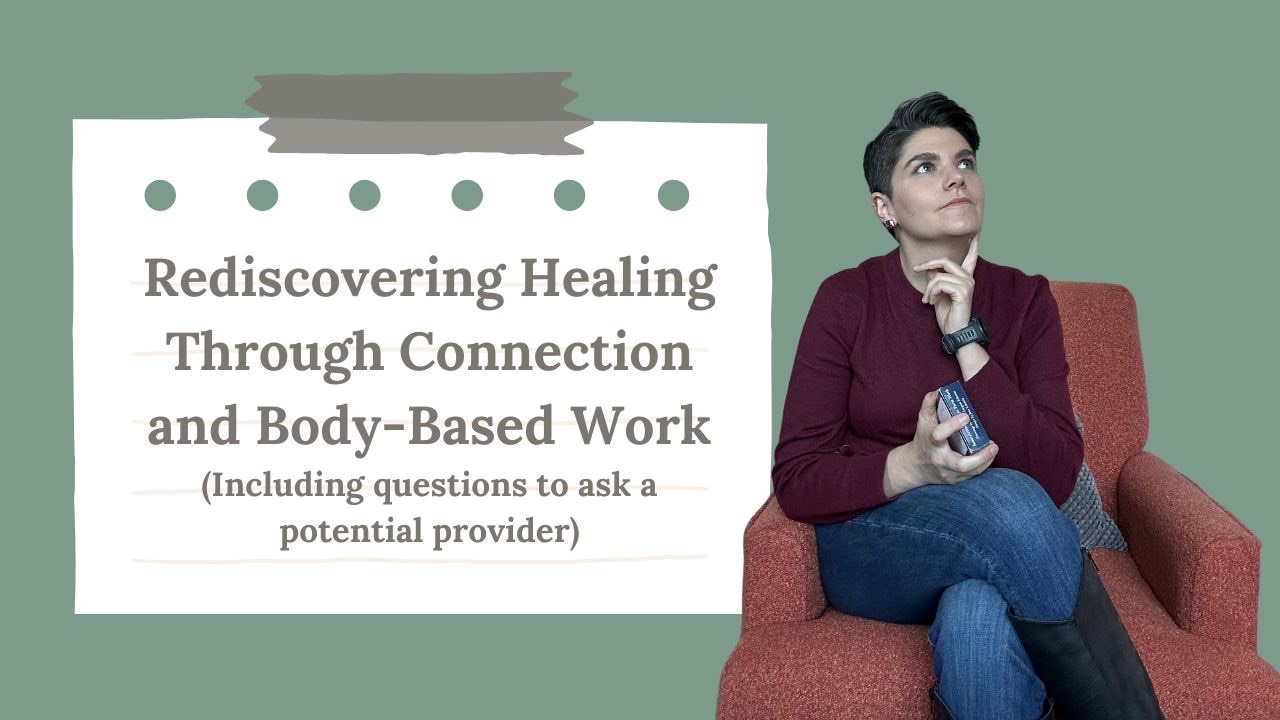Rediscovering Healing Through Connection and Body-Based Work
Jan 07, 2025
One vivid memory from my early appointments with specialists after being diagnosed with an autoimmune disorder was the stark absence of human connection and empathy. It felt like being hit with a life-altering diagnosis, handed some medications, and left to navigate this new reality alone. What I needed—what many of us need in such moments—was connection, support, and compassion.
Initially, body-based work wasn’t on my radar, but diving into it became one of the most transformative steps in my healing journey. It taught me that our brains and bodies aren't separate—they're in a constant, intricate dance. Trauma and chronic stress impact our bodies, creating a feedback loop that affects our mental state. Breaking this loop can open new pathways to healing.
Body-Based Approaches That Changed My Experience:
Somatic Experiencing Practitioners
These professionals come from diverse educational backgrounds and are trained to understand the deep interplay between the brain and body. They use various supports to help integrate past traumatic events, incorporating all parts of the brain and body. Somatic Experiencing Practitioners may include touch work and often have specialized training in chronic pain and the impact of chronic health concerns.
BASE Practitioners (Body, Awareness, Somatic, Education)
This newer approach blends techniques from various professionals to restore ease and flow in the body, addressing dysregulation from chronic stress or trauma and fostering connection through relational attunement.
Trauma-Informed Physical Therapists
Finding a physical therapist who understands medical trauma can be a game changer. They use techniques to restore movement and reduce pain, alleviating the physical symptoms of stress and trauma.
While body-based work may not be for everyone, it can be a vital path for those grappling with medical anxiety or symptoms of medical PTSD, helping to reconnect with the body and build resilience.
Questions to Ask When Choosing a Therapist or Body Worker
-
What is your experience working with chronic illness and/or medical PTSD?
This helps you gauge their familiarity with your specific challenges. -
What supports do you use to help reduce symptoms of Medical PTSD?
It gives insight into the techniques and tools they use. -
What therapy modalities do you use, and how do you incorporate the body in your work?
Understanding their approach to body-based healing is crucial. -
What is your viewpoint on patient collaboration and teamwork?
A collaborative approach ensures your needs and preferences are prioritized. -
When you've worked with patients dealing with [specific symptoms], what have you noticed creates the most success?
Tailor this question to your specific symptoms to gain targeted insights. -
How do you integrate trauma-informed care into your practice, or are you willing to work with me in a trauma-informed way?
Ensures their practices align with trauma-sensitive care and your unique needs.
Download your free guide to navigating a new medical appointment. From preparing for your appointment to post appointment care, strengthen your confidence and advocacy skills.
Stay connected with news and updates!
Join our mailing list to receive the latest news and updates from our team.
Don't worry, your information will not be shared.
We hate SPAM. We will never sell your information, for any reason.

